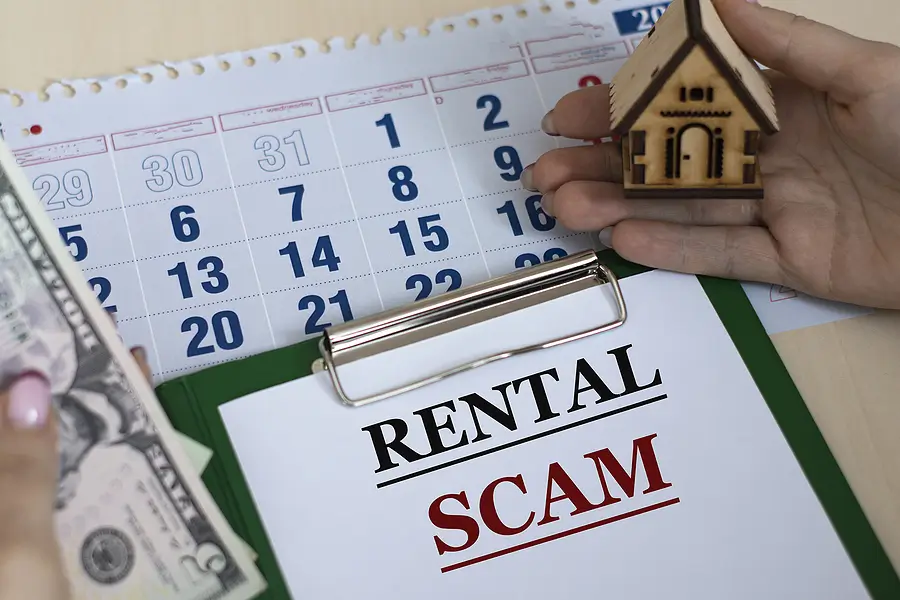Illegal apartments are a growing concern in Phoenix, AZ, where a booming rental market can sometimes blur the lines of compliance. These units often bypass local zoning laws and safety regulations, leaving renters in unsafe conditions and landlords at risk of serious legal consequences. Recognizing and addressing this issue is essential for fostering a safe and transparent housing environment in the city.
Whether you’re a tenant looking for a safe and legitimate place to live or a landlord aiming to stay compliant, understanding what makes an apartment illegal is crucial. Spotting the warning signs and knowing the stakes can save you from costly mistakes and unnecessary risks.
In this blog, we’ll offer practical tips to help renters and landlords navigate this issue with confidence and ensure your rental experience is as safe and legal!
8 Warning Signs You Are Renting an Illegal Apartment in Phoenix, AZ
In Phoenix, AZ, certain types of apartments are considered "illegal" because they don’t meet the city’s zoning or building code requirements. Here's a deeper look at the specific issues that can make an apartment illegal:
1. Basement Apartments
Basement apartments are often converted spaces meant to maximize property use. However, if these basement units lack proper exits—such as a large enough window or an exterior door—they can be incredibly dangerous.
In an emergency, such as a fire, residents may be trapped without a safe way to escape. Furthermore, basement windows that are too small or placed too high can be considered inadequate for emergency exits, making the unit not only unsafe but illegal according to building safety codes.
2. Unpermitted or Foreclosure Conversions
Some property owners attempt to make extra income by converting spaces like garages, attics, or basements into rental units without the required permits. These conversions might seem appealing because they add extra living space, but if the necessary permits were never obtained, these units are illegal.
Permits ensure the space was built or modified according to safety standards, including proper ventilation, structural integrity, and electrical work. Without the appropriate paperwork, these units can’t legally be rented out and may be shut down by local authorities.
3. No Certificate of Occupancy
A Certificate of Occupancy (CO) is a critical document for any legal rental unit. It’s issued by the city once the unit meets all required building codes, including safety regulations, sanitation standards, and zoning laws. If an apartment doesn’t have this certificate, the property hasn’t been officially approved for habitation, making renting out illegal. Without a CO, tenants risk living in spaces that may be unsafe, unsanitary, or prone to issues like flooding or structural failure.
4. No Formal Lease
If you only offer a handshake deal or operate on a verbal agreement, it’s a major red flag. Not having a written lease makes it harder to enforce any legal rights, such as using a security deposit for unpaid rent or addressing problems like safety violations.
Additionally, the absence of a formal lease can suggest that the landlord is trying to avoid legal accountability. This might indicate that the apartment is being rented illegally or that they’re trying to bypass zoning regulations.
5. Shared Spaces
In Phoenix, most legal rental units have a separate, private entrance for tenants. If your apartment shares an entrance with the main house or another part of the property, that could signal a zoning violation.
Zoning laws dictate how property spaces can be used, and if your unit is a converted space (like a basement or garage), it may not meet the criteria for a private, independent dwelling. Shared mailboxes or a common address for both the main house and the apartment are also concerning. This suggests that the apartment might not be legally registered as a separate unit, which can lead to issues with things like property taxes, utilities, and inspections.
6. Unsafe Conditions
Apartments that are illegally converted from non-living spaces often come with unsafe conditions. These can put tenants at significant risk and make the apartment uninhabitable by code:
- Poor electrical wiring: A major concern as it can pose fire hazards. For example, using extension cords as a permanent solution for power can overload circuits and potentially cause electrical fires.
- Lack of proper HVAC system: Considered a significant safety and health hazard, especially in a climate like Phoenix's with extreme heat.
- Substandard plumbing: Can lead to flooding, mold, or water damage.
7. Suspicious Lease Terms
Landlords who exclusively accept cash to pay rent often operate outside the legal framework. This practice makes it extremely difficult for tenants to dispute issues and prove their tenancy. Also, frequent requests for short-term leases (e.g., weekly or monthly) or month-to-month rental agreements can indicate an attempt to conceal illegal activities, such as operating the property without the necessary permits or running an unlicensed boarding house.
8. No Clear Address or Unit Number
It's illegal if the landlord refuses to disclose the exact address of their rental property. This can significantly hinder a tenant's ability to establish legal residency since many essential services and government functions require a valid residential address. This includes registering to vote, obtaining a driver's license, accessing government benefits, and establishing a credit history.
If tenants rent a home without a valid address, their capacity to participate fully in society and exercise their rights might be severely hindered.
How to Prevent Illegally Renting Out Apartments in Phoenix
To avoid the potential risks and legal issues that come with illegal tenancy, landlords must take proactive steps to ensure that their properties are compliant with local regulations:
Get Permits
Before converting any residential space—such as a basement, attic, or garage—into a rental unit, landlords must obtain the necessary permits from the city. These permits ensure that the conversion complies with Phoenix’s building codes and doesn’t violate local zoning requirements. Failure to obtain proper permits before making modifications can classify your rental as an illegal unit.
How to Do It: Visit the City of Phoenix Planning and Development Department to apply for building and zoning permits before beginning any conversions. They can also request an inspection once the work is completed to confirm that the unit is up to code and eligible for a CO.
Inspect Regularly
After obtaining the proper permits, landlords should schedule regular inspections to ensure that the rental unit continues to meet all safety standards and complies with local laws.
How to Do It: Arrange for third-party inspections or work with the city’s building code enforcement officers to check for issues such as outdated electrical systems, improper plumbing, or structural hazards. Additionally, regular inspections help ensure that tenants are maintaining the unit responsibly, reducing the risk of issues like code violations, mold, or pest infestations.
Communicate Clearly
Transparency with tenants is key when it comes to compliance. Landlords should always communicate the status of their legal apartments and any steps being taken to ensure they meet all necessary standards.
Access Expert Legal Guidance for Your Rentals with RPM Phoenix!
Ensuring that your rental properties are legally compliant with local zoning and building codes is essential to protect both your investment and your tenants. This can be daunting as a landlord but with the help of property management experts, you can ensure that your properties are up to code and avoid potential legal pitfalls.
By partnering with a reputable property management company like Real Property Management Phoenix Valley, you gain access to a team that is experienced in obtaining the necessary permits, coordinating inspections, and ensuring that your units are legally rented. Our team can help you with everything, such as:
- Obtaining Necessary Permits
- Coordinating Inspections
- Securing a Certificate of Occupancy (CO)
- Zoning Compliance
- Lease Agreement Management
- Tenant Communication
- Ongoing Property Monitoring
- Legal Guidance
Don’t let legal complexities hold you back. Contact us today and ensure your Phoenix rental units are compliant and hassle-free!


